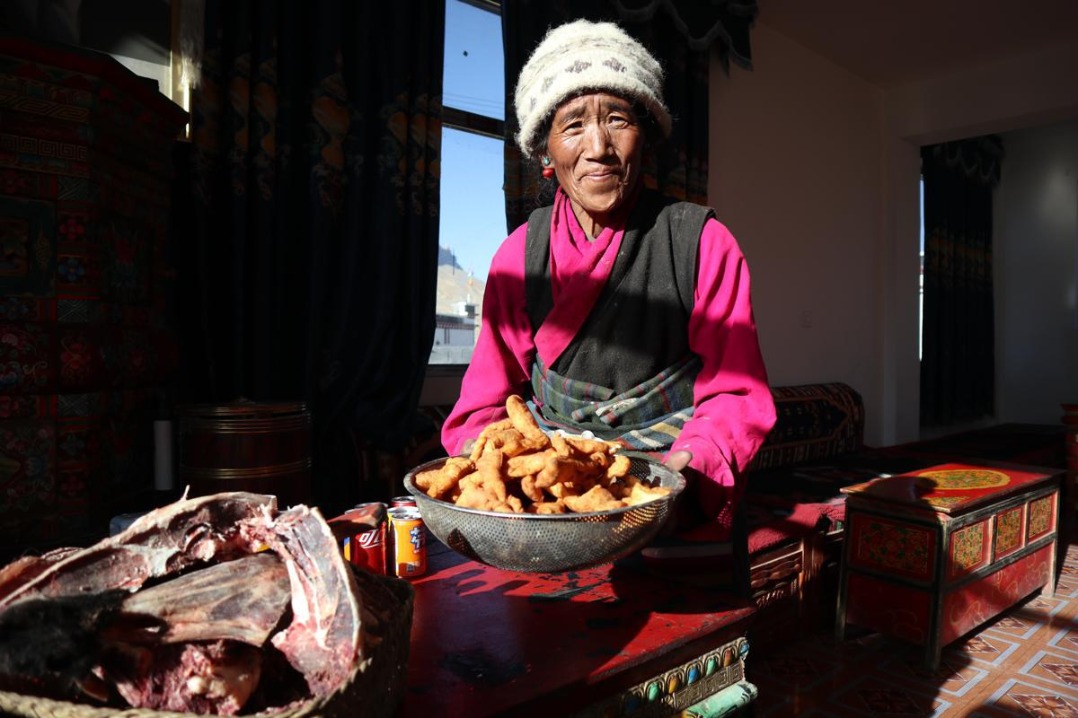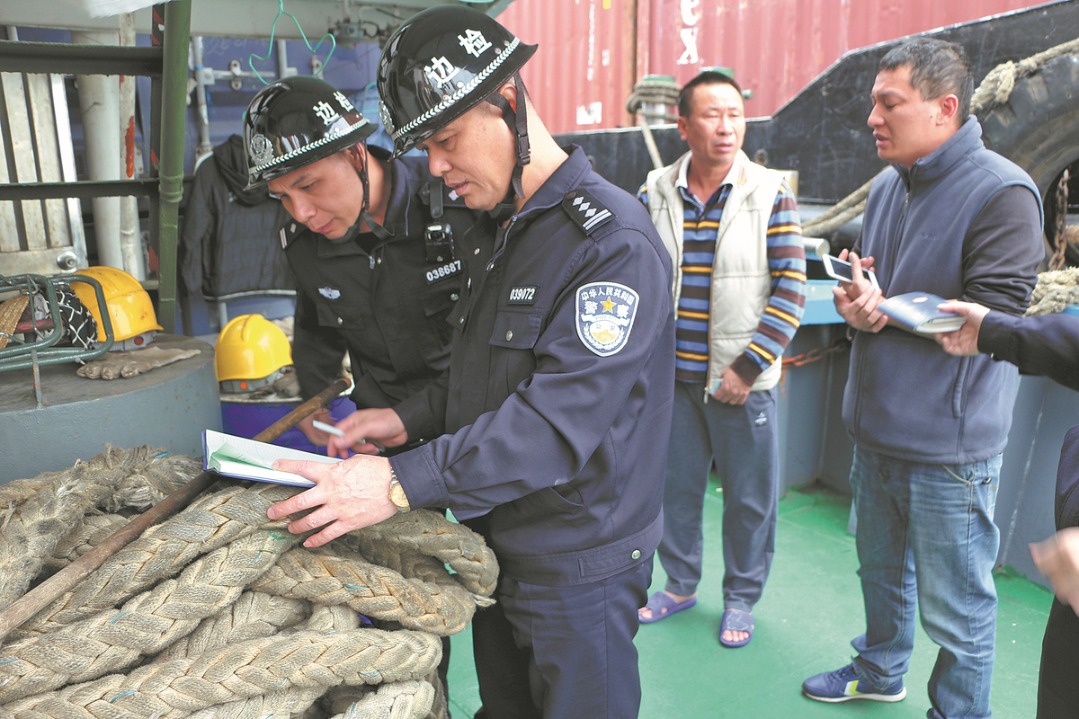For this company the going is heavy, and that's good

Infrastructure work raises demand for big construction equipment
Andrew Mambo reckons he has his fingers on the pulse of the motor industry in Kenya. Mambo, general manager of sales at AVIC International Beijing's motor division in the country, has worked in the industry for 15 years.
The entry of Chinese-made construction equipment is now eating into the huge market share that European brands have traditionally enjoyed, he says.
| Andrew Mambo, general manager of sales at AVIC International Beijing's motor division in Kenya, says the Chinese company keeps good relationships with financial institutions and most of his customers buy trucks through asset financing. Provided to China Daily |
Weeks ago the company surpassed its annual sales target for heavy-duty construction vehicles. For Shantui branded machinery, the sales trajectory has been an ever rising one, he says, with 110 units having been sold last year, compared with 90 in 2013. Mambo says he expects 120 to be sold this year.
"I believe we are the market leaders," Mambo says.
That success has encouraged the Beijing-based firm to expand its product offering. On Nov 7 it announced the launch of AVIC-Shacman, a joint venture that will deal in tip trucks and prime movers. Shacman, whose full name is Shanxi Automobile Holding Group, is well known for advanced heavy-duty vehicles, and it has a presence in South Africa, Ethiopia and Algeria, where the company says it had sold more than 8,000 trucks by last year. Its headquarters is in Xi'an.
AVIC International also has partnerships with Shantui Construction of Shandong province and JAC Motors of Anhui, all of these ventures allowing AVIC to become a one-stop shop for equipment used in infrastructure projects.
Shacman entered Kenya in 2006 after winning a tender from the Kenyan Ministry of Defense for 400 military trucks and after one of its trucks won a 15-day rally.
Last year it delivered 105 trucks to the National Youth Service, a government paramilitary training outfit in Kenya. The trucks are used in construction work and disaster relief.
"Half of our incoming orders have already been sold," Mambo says.

Shadrack Malusha, director of Shaluma Enterprises, a construction company in Mombasa, is in the process of buying 30 Shacman trucks.
"I am investing about $1.6 million. Once the market realizes the value of these trucks, I think they will cost a lot more and I will have done well to invest in them."
Mambo says that because of his long spell in the industry, he has cultivated good relationships with financial institutions.
"Most of our customers buy through asset financing; only 2 percent pay cash. So we help speed up loan applications."
Even though Chinese-made construction equipment makers are gaining an increasing share of the African market, that does not mean their war is won. Their long-time European rivals and new entrants continue to make the market highly competitive.
In addition, the country allows the import of used vehicles, which produces a strong challenge to Shacman on price.
The country also allows second-hand vehicles with higher emissions, and their prices undercut those of new trucks with advanced technology. But Mambo says that the used cars come with no guarantee or manufacturers, warranty.
In a ceremony during which the AVIC-Shacman partnership was announced, Chen Zhe, the manager of AVIC Beijing, said the venture brought the two a step closer to achieving their dream of building the foundation of Kenya's industrialization.

"What we hope to do is integrate China's industrialization experience locally. We are beginning by developing some local component-parts manufacturing capacity that engages in the complete product assembly process locally."
In its partnership with the National Youth Service, AVIC International has stationed a training team at the institution to service and maintain trucks. It is also helping improve technical skills in vocational institutions through a program called Africa Tech Challenge. Ten of its participants will be given internship opportunities at the vehicle division.
Meshack Opwora, the deputy director in the Ministry of Education Science and Technology, says the joint venture is creating jobs and other opportunities for graduates from technical institutions.
AVIC International's technical challenge program is stimulating creativity, he says.
"You are widening creativity, making our youths employable and eradicating poverty," Opwora told company officials in a speech.
Mambo says jobs will continue to be created thanks to the growing construction sector. According to the Economic Survey 2015, ouput in the construction industry rose 13.1 percent last year, compared with 5.8 percent in 2013.
A report in May attributed the double-digit growth to a robust property market and big infrastructure projects such as the standard gauge railway from Nairobi to Mombasa.
Mambo says the company plans to exploit other strategies such as leasing soon.
"The challenge now is Kenyans' peculiar habit of wanting to own the asset. The leasing concept is yet to gain traction here despite it being popular in developed markets."
lucymorangi@chinadaily.com.cm
(China Daily Africa Weekly 11/20/2015 page19)
Today's Top News
- Spirit of the Long March guides nation in quest for socialist modernization
- China curbs dual-use item exports to Japan
- UN members denounce US attack
- US attacks on Venezuela violate international law
- From visa-free access to smart travel
- China's central bank signals flexible policy tools to guide financial growth































